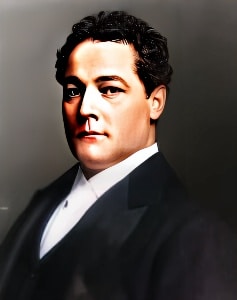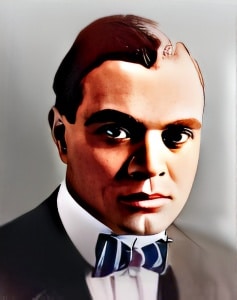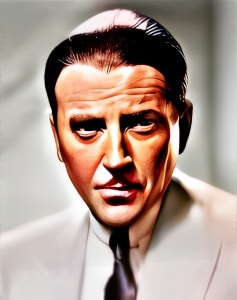 Melbourne MacDowell, a notable American actor born on September 29, 1884, in Philadelphia, Pennsylvania, played a significant role in the early years of American cinema.
Melbourne MacDowell, a notable American actor born on September 29, 1884, in Philadelphia, Pennsylvania, played a significant role in the early years of American cinema.
His career spanned the silent film era, and his work left a lasting mark on the history of film. While his name may not be as widely recognized today as some of his contemporaries, Melbourne MacDowell’s contributions to the industry continue to be appreciated for their significance and impact.
MacDowell’s journey into the world of entertainment began in the early 20th century, during a period when the film industry was still in its infancy. Silent films were the dominant form of entertainment, and actors were required to convey emotions and narratives primarily through facial expressions and physical movements. Melbourne MacDowell’s adaptability to this medium and his ability to engage with audiences through his performances were indicative of his acting prowess.
One of the pivotal moments in Melbourne MacDowell’s cinematic career was his involvement in the 1920 silent film “ Outside the Law,” directed by Tod Browning and featuring Priscilla Dean, Lon Chaney, and Wheeler Oakman. “ Outside the Law” is a crime drama that explores themes of love, betrayal, and redemption within the criminal underworld of San Francisco. In the film, MacDowell played a significant role, contributing to the depth of the narrative and showcasing his ability to engage with complex characters and emotionally charged storylines. His presence added to the ensemble cast’s overall impact.
The film “ Outside the Law” is celebrated for its exploration of morality and complex characters, making it a thought-provoking narrative that was typical of the crime dramas of the silent era. Melbourne MacDowell’s performance in the film, along with the rest of the cast, continues to resonate with audiences and remains a valuable part of cinematic history.
MacDowell’s career extended beyond “ Outside the Law.” He appeared in a variety of silent films, encompassing dramas, comedies, and character-driven roles. His filmography showcased his adaptability as an actor and his commitment to his craft. His ability to engage with a diverse range of characters and narratives established his reputation as a versatile actor in the early days of cinema.
The transition to sound films marked a significant shift in the film industry, challenging many silent film actors to adapt to this new era. Melbourne MacDowell successfully made this transition, demonstrating his adaptability and commitment to his craft. He continued to appear in sound films, solidifying his place in the evolving cinematic landscape.
While Melbourne MacDowell’s name may not be as widely recognized today as some of the leading actors of his time, his contributions to early American cinema are a testament to his talent and dedication as an actor. His performances in the silent film era and his successful transition to sound films underscore his versatility and lasting impact on the industry.
In conclusion, Melbourne MacDowell was a significant American actor who left his mark on the early years of American cinema. His ability to adapt to the changing landscape of the film industry, as well as his talent and dedication, continue to be appreciated. Although his name may not be as widely remembered today, his work in the early days of cinema remains a valuable part of the history of early Hollywood. Melbourne MacDowell’s performances continue to inspire future generations of actors and filmmakers, and his legacy endures as an integral part of the early days of the film industry.
Loading live eBay listings...




